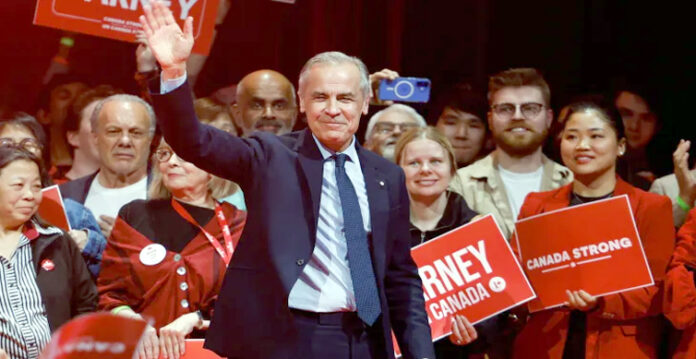Mark Carney has been declared the winner in Canada’s federal elections, retaining the office of Prime Minister after a tightly contested race. Despite winning by a narrow margin, Carney’s re-election affirms Canadian voters’ trust in his leadership at a time of global uncertainty and economic volatility.
Carney’s return to office comes at a crucial moment. With U.S. President Donald Trump escalating his protectionist trade policies during his second term, Canada is once again facing the challenge of navigating an increasingly hostile economic environment with its largest trading partner. Carney has vowed to push back against these trade pressures and recalibrate Canada’s economic direction in a rapidly shifting global landscape.
The election outcome is seen as a vote of confidence in Carney’s ability to speak to Trump “in his language,” with many Canadians believing he is the leader best equipped to defend national interests and pursue a balanced foreign policy. The ongoing effects of Trump-era tariffs on Canadian steel, aluminium, and other key exports have left lasting scars, reinforcing the urgency to reduce reliance on U.S. markets and seek alternative trade routes.
Also Read: Khalistan sympathiser Jagmeet Singh quits as NDP leader after defeat in Canada election
In this context, India has emerged as a priority partner for Ottawa. With one of the world’s fastest-growing economies and increasing geopolitical influence, India represents a viable and strategic alternative for trade and investment. For years, negotiations over a Comprehensive Economic Partnership Agreement (CEPA) between Canada and India have remained inconclusive. But Carney’s renewed mandate offers a chance to inject momentum into these discussions. Canada’s search for resilient markets aligns with India’s ambitions to expand its export base and attract foreign investment.
Beyond trade, the re-election of Carney opens the door for broader collaboration in areas such as technology, green energy, education, and critical minerals. India’s growing demand in these sectors complements Canada’s resource base and innovation capabilities, providing fertile ground for mutual gains. This alignment could form the bedrock of a redefined bilateral relationship that is less dependent on the ebb and flow of U.S. politics.
However, the road ahead is not without obstacles. Diplomatic relations between Canada and India reached a low point during Justin Trudeau’s tenure, largely due to issues surrounding Sikh separatism and the presence of Khalistan sympathisers on Canadian soil. While Carney has shown willingness to mend ties — including his recent participation in Ram Navami celebrations with the Hindu community — rebuilding trust will require sustained and sensitive engagement. Both sides will need to adopt a pragmatic approach, taking incremental steps to address long-standing concerns and foster confidence.
The Indian diaspora in Canada, one of the largest and most politically significant outside India, is expected to play a pivotal role in this renewed engagement. Their contributions can serve as a cultural and economic bridge between the two nations, especially if the Carney government actively recognizes and leverages this demographic strength.
Nevertheless, challenges remain. Domestic political dynamics, differing strategic alignments, and the lingering shadow of U.S. influence all pose hurdles to closer India–Canada cooperation. While India’s evolving relationship with the United States — particularly through frameworks like the QUAD — may help smooth some frictions, deep-rooted differences will require careful handling.
Carney’s electoral win, set against the backdrop of global trade realignments and domestic recalibration, offers a unique opportunity for Canada to redefine its external economic policies. For India, it presents a chance to forge a more meaningful, stable, and future-oriented partnership with a key Western democracy.
If both nations can match political intent with diplomatic agility, the coming years may well usher in a new era of cooperation, marked by shared growth, resilience, and global ambition.
(This story is sourced from a third-party syndicated feed. Raavi Media takes no responsibility or liability of any nature. Raavi Media management/ythisnews.com can alter or delete the content without notice for any reason.)


